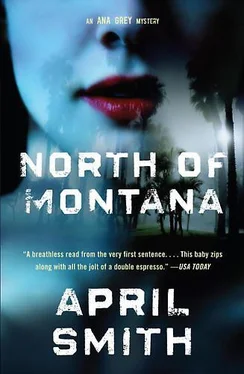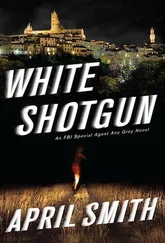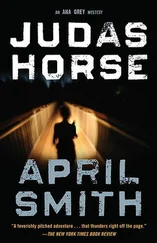Punching his number without even thinking about it, “Stop pulling this shit.”
“Cool out, Ana. You’re way over the top.”
He sounds stoned. I got him in his apartment in Redondo Beach, where I can easily picture him sitting on the seat of a rowing machine — because the only other furniture is a NordicTrack — wearing nothing but a pair of sweatpants and smoking a joint. Young to be a detective sergeant, he has built himself one of the world-class torsos, but still wears that sort of Tom Selleck moustache that went out in the seventies, maybe to distract from rivulets of acne scars that run across his cheeks.
“Ana … what are you so afraid of?”
He used to whisper that in bed, challenging me to take it farther until we passed some very distant boundaries. When I told him I’d had enough, his bombardment of flowers, phone messages, faxes, cute little trolls with open arms took on the same aggression as his sex, infuriating me to the point where I once threw a punch and cracked him on the lower jaw. The more I pulled away the harder he came on, relentless and increasingly irrational, until I took to carrying a weapon at all times.
“What is the point, John?”
“Thought you’d be interested in a last look at your cousin.”
“Fuck you.”
“Fuck me ?” He laughs. “Miss Señorita Alvarado was a fucking dope dealer.”
Mrs. Gutiérrez described Miss Señorita Alvarado as a long suffering mother of two.
‘What makes you say she was dealing dope?”
“It was a hit.”
I am interested. “Were there witnesses?”
“A street kid named Rat called it in to 911 but — no surprise — later told the investigating officer he didn’t see a thing. Doesn’t matter. It was a drive-by. The weapon was a forty-five-caliber Mac-10, fully automatic, good for nothing but killing people. Fifteen shots were fired. The victim was hit by seven.”
“Could have been random.”
“Take a look at picture number five.”
I walk back into the kitchen with the phone to my ear and pick up number five, the one where the body was washed to show the wounds. Half-inch bullets do not make neat pinholes. They break bones. They rip out the windpipe and cause hemorrhaging in the thorax.
“That’s a lot of destruction.”
“You know what it feels like to get an injection. Imagine something the size of a pencil being shoved through your body.”
“How do you die?”
“Blood fills the chest cavity until you can’t breathe.”
“How long do you think it takes to drown in your own blood, John?”
“Couple of minutes,” he answers matter-of-factly. “You lay there thinking about it. Look at the hands.”
No hands, just two bloody stumps.
“They blew off her hands,” he instructs. “As punishment for taking what didn’t belong to her. Dealers like that kind of thing. It’s a symbol even a lowlife can understand.”
It is easier to talk to him as a colleague, two professionals on safe ground. I remember that was part of it, too.
“Was there evidence of drugs?”
“No, but what are the two reasons a female would be out on Santa Monica Boulevard at five in the morning? Dealing crack or turning tricks.”
“A typically sexist assumption.”
“That’s me.”
“No shit.”
“This Gutiérrez woman keeps bugging us, swears the victim was related to Ana Grey in the big FBI and that she has proof.”
“What kind of proof?”
“ Yo no se but the thought ambled across my cocked-up brain that if Alvarado was dealing and the bad guys were pissed enough to blow her away, and if they know you’re a fed … Who the fuck knows, there could be some kind of fallout.”
“I appreciate the concern.”
Now I can clearly hear him taking a toke. On the exhale, “Relax, Ana. You’ll be happy to know I’m boffing the lady lieutenant over on homicide.”
What was I afraid of?
John Roth hadn’t stopped calling until I threatened a court order. A few weeks later I found a blood-soaked tampon hanging from the doorway in my living room — a symbol even a lowlife could understand that John was seeing another woman. I never confronted him, never had proof, but changed the locks and stopped dating men.
“I’m happy for you both.”
You couldn’t walk or even step on the balconies of the apartment building where Violeta Alvarado lived in Pico Rivera; they are purely decorative, as if a dozen grates of phony wrought iron and some Spanish-looking lamps could transform an orange stucco box into a hacienda. The building is typical West Coast tenement housing, a cockeyed design of stucco trapezoids overhanging an open carport, so that everybody’s windows open into everybody else’s and a central courtyard is created that magnifies and echoes every sound. Someone has wedged a bicycle between his window and the black metal filigree. Needless to say it is on the second floor — otherwise, the bicycle would have been picked clean through the bars like a skeleton.
Nobody is around this Monday morning. I am buzzed into the lobby through some warped metal doors and pass underneath a hanging sculpture that looks like the innards of a pipe organ, skipping the elevator because who knows what is lurking inside, trudging up two flights of metal stairs.
The apartment smells like roach spray and fish cooked in oil. The light-chocolate-colored carpet is thin and cheap and bunches up under your feet; if you don’t trip on the rug, you will over the children — five or six of them running between two small rooms.
“Is this Violeta Alvarado’s apartment?”
“Yes, but I am living here now.” Mrs. Gutiérrez beckons me to a sofa in harshly textured pea-green plaid, the kind you would find in a twelve-dollar-an-hour motel room in Tijuana.
“Were you living with Violeta?”
“No, I had a small apartment upstairs. One room only. I called the landlord right away and asked if I could have this one.”
Mrs. Gutiérrez fights a cigarette. She is buxom, with the most improbable hairstyle — dyed bright black, chopped short around the ears and teased high off the crown, then falling below her shoulders in a mantilla-like effect. She wears a yellow sleeveless dress that does not apologize for a stoutish body, the short skirt showing off bare round legs and feet with painted toenails in rubber thongs.
“So after Violeta was killed, you got her apartment.” I watch for her reaction.
She nods. “I had to call right away. Lots of people wanted it.” She is proud of herself for making a smart move. She is a survivor.
“Are these Violeta’s children?”
“Teresa and Cristóbal are in the other room. I have a day care business. In San Salvador I was in charge of the kitchen of a very big hotel. I had a nice white house, a husband and two boys — all killed by the military.”
“I’m sorry.”
“I can’t get that kind of a good job here. So these are the children I watch for the parents who are working.”
They seem clean and healthy and occupied with one another and the few frayed dolls and beat-up blocks they have to play with. I become aware of a biting, sour smell just as Mrs. Gutiérrez rises, murmuring something in Spanish, and lifts an infant from a rickety wooden crib I hadn’t noticed that was stuck in a corner.
I stay where I am while she changes the baby on a card table, taking in the Japanese prints on the wall alongside paintings of volcanos, beginning to suspect that what I am seeing is simply what there is: no addicts, no hookers, no child abuse, no scam.
Mrs. Gutiérrez props the baby up on her shoulder and gives it a few comforting pats. “I am very glad you came,” she says.
“I came to tell you to stop saying Violeta Alvarado was my cousin.”
Читать дальше












